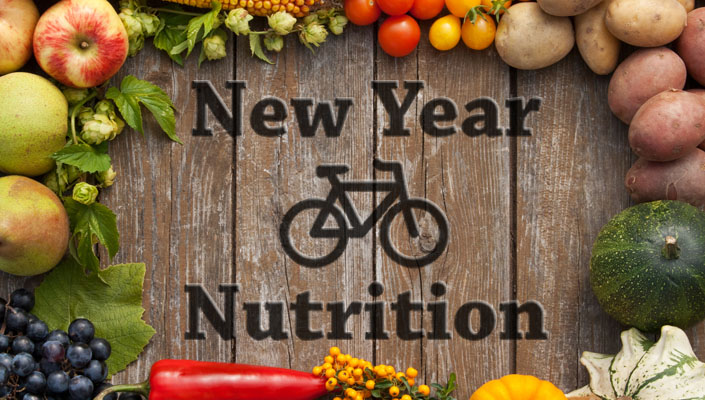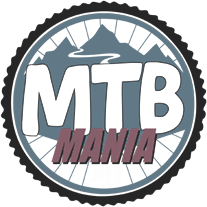We all do it... We over-indulge in the Christmas feast, the pudding, custard, and ice-cream, not to mention all the alcohol. Some of us justify it by claiming that once the New Year ticks around, our focus will be to get healthier, fitter, faster, stronger, and leaner on the bike.
The new year is a great time to start fresh and re-evaluate your cycling goals. Whether you're a weekend warrior or seasoned racer, it's worth looking at your nutrition as it plays a big part in improving your cycling. BikeRoar is here to help you with your New Year's resolution by bringing you some key advice on how you can improve your diet for the upcoming bike season.
What do cyclists need in terms of nutrition?
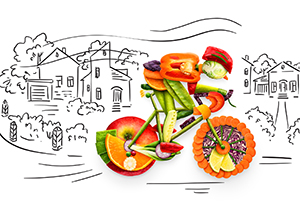
image: depositphotos.com
To put it simply, every cyclist needs the right amount of energy to feed their muscles so they can get you to the top of the hills. Bicyclists also need the right recovery foods to help their bodies repair and rebuild themselves after they ride.
To see the benefits, you may not need to go to extremes in changing what you eat. You may start to feel better (and lose weight) just by changing a few simple things. Cyclists need diets that are high in energy, high in protein, and high in carbohydrates for muscle fuel stores, with plenty of vitamins and minerals.
It can be deceiving as you see the huge number of calories you burned; you immediately want to reward yourself with a juicy steak, burger, or your 'food reward' of choice. If you are trying to lose weight, you could work it out by making sure you eat a little less than what you burned off. Remember, your calories out must be greater than your calories in in order to lose weight.
Cyclists need regular food
I'm sure you've all seen the cycling commuter in the office kitchen having their 'second breakfast' at 8am. If you ride a lot you need frequent meals and snacks (we call this 'grazing'). You also need to time your meals and snacks right to enhance muscle glycogen restoration. Consuming carbohydrates and nutrients immediately after training kick starts glycogen synthesis and promotes recovery.
Don't leave it too long between eating. If you get too hungry, you are likely to grab convenience foods (which are often less healthy) and overeat.
I'm sure you've heard it all before, but never underestimate the importance of breakfast, especially if you are about to go riding. Aim for food with proteins and fiber rich carbohydrates; try eggs, fruit, yogurt, and oats. You don't want to start the day being in energy deficit and then overeating after your morning ride.
Carbohydrates & proteins (the energy source for cyclists)
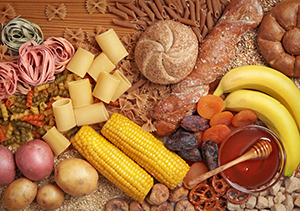
image: depositphotos.com
There are articles galore on the grams of carbohydrates per weight of the rider. Unless you love counting grams and reading food labels, then I suggest keeping it simple; too many carbs can make you feel sluggish. Eat the good carbohydrates that are slow burning: whole grains, oats, quinoa, and fruits and vegetables (which also give you needed fiber). Limit your amount of carbs to a fist sized portion with each meal.
Protein in food is needed for recovery. Protein also assists in your overall health and immune system function. The bonus of a high protein diet is that it is great for helping you feel full (which can prevent you from snacking on unhealthy snacks in between meals). Healthy protein foods include lean meats, fish, and low fat dairy.
Good fats, vitamins, and minerals
Try to consume good / healthy fats (Omega-3 and monounsaturated) like those found in nuts, seeds, fish and good oils. Then feed your body with a source of vitamins and minerals found naturally in healthy food (e.g. eat 5 pieces of fruit or vegetables a day) or use supplements. Just remember, we are meant to get all the vitamins we need from actual food, so if you find yourself taking a plethora of pills every morning, you might want to reconsider what foods you are eating.
RELATED: What NOT to eat when cycling
On-bike nutrition
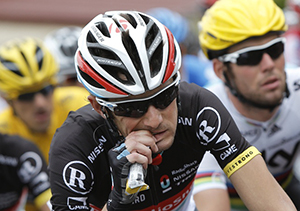
image: ziggyscycle.ca
Sports gels are designed to give you a hit of carbohydrates and sugar while out on the bike. They each have approximately 65-70% or 65-75 g/100 ml (or 20-25 g) of carbohydrates.
Gels are useful, but one big mistake we make is the overuse of high-sugar energy gels or sports drinks. They are great for races or longer training rides, but keep in mind their caloric values and use accordingly. The Australian Institute of Sport (AIS) states that for exercise less than 45 mins, you don't need any extra carbohydrates. They also mention "excessive use of gels during every training session can lead to over consumption of energy intake and an over-reliance on low-nutrient carbohydrate sources".
The AIS provides a great summary of widely available sports gels, with the top brands containing the following energy and carbohydrates:
• PowerBar Energy Gel: 462-504 kJ, 27-28g carbohydrates
• Clif Bar Energy Gel: 462 kJ, 22g carbohydrates
• GU Energy Gel: 420 kJ, 20-25g carbohydrates
• Torq Gel: 468-476 kJ, 29g carbohydrates
Sports gels are also quite expensive compared to normal foods. If you are feeling adventurous you could make your own gels and choose exactly what goes into them (try chocolate, peanut butter or lime flavors).
Don't forget the humble banana. It is a great food for cycling as it's rich in carbohydrates, low in fat, high in fiber and contains natural sugar: fructose, sucrose, and glucose. Use it on route or as a recovery food.
Hopefully this has given you guidance on how to improve your cycling nutrition this new year, which will make you a leaner, healthier, fitter, faster, stronger rider.
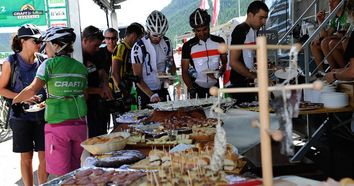
RELATED ARTICLE:
Cycling and food: When to eat and what to eat
Cycling and food. They go hand in hand, whether you like it or not. If you enjoy eating this is great news, but for most of us... READ MORE
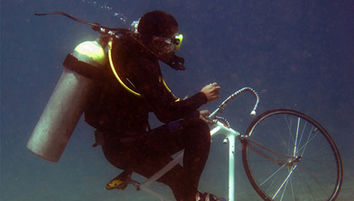
RELATED ARTICLE:
The 5 most important nutrients for every cyclist
Proper diet is absolutely key for every cyclist no matter if you're a racer or a recreational rider.BikeRoar gives you the 5 most important... READ MORE
